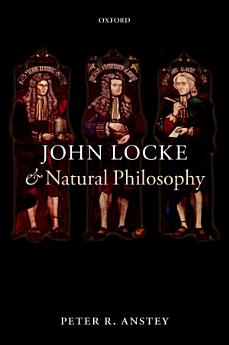John Locke and Natural Philosophy
apr. 2013 · Oxford University Press
E-knjiga
272
Strani
family_home
Primerno
info
reportOcene in mnenja niso preverjeni. Več o tem
O tej e-knjigi
Peter Anstey presents a thorough and innovative study of John Locke's views on the method and content of natural philosophy. Focusing on Locke's Essay concerning Human Understanding, but also drawing extensively from his other writings and manuscript remains, Anstey argues that Locke was an advocate of the Experimental Philosophy: the new approach to natural philosophy championed by Robert Boyle and the early Royal Society who were opposed to speculative philosophy. On the question of method, Anstey shows how Locke's pessimism about the prospects for a demonstrative science of nature led him, in the Essay, to promote Francis Bacon's method of natural history, and to downplay the value of hypotheses and analogical reasoning in science. But, according to Anstey, Locke never abandoned the ideal of a demonstrative natural philosophy, for he believed that if we could discover the primary qualities of the tiny corpuscles that constitute material bodies, we could then establish a kind of corpuscular metric that would allow us a genuine science of nature. It was only after the publication of the Essay, however, that Locke came to realize that Newton's Principia provided a model for the role of demonstrative reasoning in science based on principles established upon observation, and this led him to make significant revisions to his views in the 1690s. On the content of Locke's natural philosophy, it is argued that even though Locke adhered to the Experimental Philosophy, he was not averse to speculation about the corpuscular nature of matter. Anstey takes us into new terrain and new interpretations of Locke's thought in his explorations of his mercurialist transmutational chymistry, his theory of generation by seminal principles, and his conventionalism about species.
O avtorju
Peter R. Anstey studied analytic philosophy and the history of philosophy at the University of Sydney. He later took up a U2000 postdoctoral fellowship at Sydney and then a lectureship. In 2006 he moved to Dunedin in New Zealand where he is the inaugural Professor of Early Modern Philosophy in the Department of Philosophy at the University of Otago. His research focuses on early modern philosophy with special reference to the writings of John Locke and Robert Boyle. He is the author of The Philosophy of Robert Boyle (Routledge, 2000).
Ocenite to e-knjigo
Povejte nam svoje mnenje.
Informacije o branju
Pametni telefoni in tablični računalniki
Namestite aplikacijo Knjige Google Play za Android in iPad/iPhone. Samodejno se sinhronizira z računom in kjer koli omogoča branje s povezavo ali brez nje.
Prenosni in namizni računalniki
Poslušate lahko zvočne knjige, ki ste jih kupili v Googlu Play v brskalniku računalnika.
Bralniki e-knjig in druge naprave
Če želite brati v napravah, ki imajo zaslone z e-črnilom, kot so e-bralniki Kobo, morate prenesti datoteko in jo kopirati v napravo. Podrobna navodila za prenos datotek v podprte bralnike e-knjig najdete v centru za pomoč.




